EU Military Assistance Mission marks presence at the launch of Mozambique Armed Forces Week
Mozambique: Assembly elects new CNE – AIM report
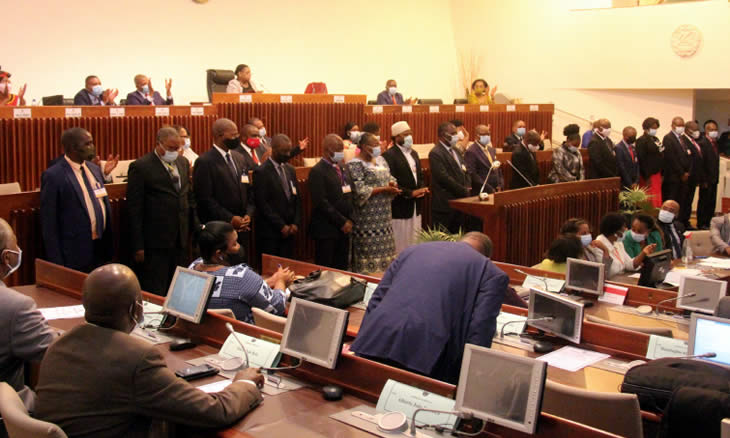
Photo: O País
The Mozambican parliament, the Assembly of the Republic, on Tuesday selected the seven people proposed by civil society organisations who will sit on the new National Elections Commission (CNE).
The people chosen do not, in any meaningful way, “represent” civil society. Civil society organisations were asked to send names to an Assembly ad-hoc commission, which then drew up a short list for presentation to the Assembly plenary. There was no mechanism whereby civil society bodies could hold a conference to elect CNE members.
The ad-hoc commission received 151 names submitted by 35 organisations, and whittled this down to a short list of 16.
The CNE is dominated by political parties. The electoral law of 2014 states that the CNE has 17 members – five appointed by the ruling Frelimo Party, four by the main opposition party, Renamo, one by the second parliamentary opposition party, the Mozambique Democratic movement (MDM), and seven from civil society.
But the civil society names are filtered through the ad-hoc commission, consisting of five deputies, three from Frelimo, one from Renamo and one from the MDM. In the final stage they are voted on by the Assembly, more than two thirds of whose members are from Frelimo.
Filtering through the parties means that outspoken, independent voices are unlikely to make it onto the short list. Several genuine civil society bodies, including the Centre for Public Integrity (CIP), the Centre for Democracy and Development (CDD), and the Forum of Community Radios (FORCOM), objected strongly to the system. While they did not propose boycotting the system, they did call for a much long period of discussion and preparation, but the ad-hoc committee ignored their proposal.
In 2014, there was an informal agreement between the then President, Armando Guebuza, and the then leader of Renamo, Afonso Dhlakama, that Frelimo would pick four of the civil society CNE members, Renamo two and the MDM one. This arrangement is not part of the electoral law, so Frelimo could easily break it, which is exactly what Renamo now accuses it of doing. Renamo says that five of the seven civil society members were Frelimo choices.
The seven people whom the Assembly elected on Tuesday are as follows:
Carlos Matsinhe, Anglican Bishop of the Lebombos diocese in southern Mozambique, proposed by the Christian Council of Mozambique;
Daude Ibramugy, proposed by the Council of Religions of Mozambique (which brings together prominent Christians, Moslems and Hindus). This organisation also backed the CCM’s proposal of Bishop Matsinhe
Alice Banze, proposed by the Women’s Forum, an umbrella grouping of organisations fighting for women’s rights. She is the coordinator of Gender Links-Mozambique;
Paulo Cuinica, who was the spokesperson for the outgoing CNE. He was proposed by the little-known Christian Association for Community Development;
Salomao Moyana was proposed by the Mozambican Association for the Development of Democracy, but his real civil society credentials are decades of work as a journalist, at AIM, and later as editor of the weekly papers “Savana” and “Magazine Independente”. He was a member of the outgoing CNE;
Apolinario Joao, another member of the outgoing CNE and Rui Chirene, were both proposed by the same organisation, the Youth Association for Community Development.
The five CNE members proposed by Frelimo are:
Carlos Cauio, who is a very experienced lawyer. He was the first chairperson of the Mozambique Bar Association (OAM), and more recently was an advisor to Veronica Macamo when she was chairperson of the Assembly;
Rodrigues Timba, coordinator of legal and ethical matters in the outgoing CNE;
Antonio Mauvilo, a lecturer in agronomy at Maputo’s Eduardo Mondlane Unversity;
The final two Frelimo choices, Abilio Diruala and Eugenia Chimpenembe, are not well known figures.
Renamo’s choices are:
Fernando Mazanga, a member of the outgoing CNE, and a former Renamo national spokesperson;
Maria Anastacia Xavier, a former Renamo member of the Assembly;
Abilio Fonseca, a former deputy provincial director in Zambezia of the Electoral Administration Technical Secretariat (STAE);
Alberto Sabe, a lawyer who has defended Renamo in the courts.
Finally, the MDM reappointed writer Bernabe Nkomo to the CNE.
The law states that the chairperson of the CNE must be one of the civil society members. There is a tradition of appointing clerics (Christian and Moslem) to the job, and so it is quite likely that the CNE will elect Bishop Matsinhe as its leader. On the other hand, there has never been a woman chairperson of the CNE, and this factor might lead the CNE to choose Alice Banze for the top post.



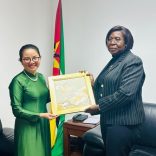
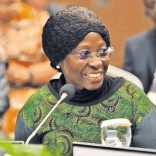
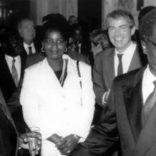
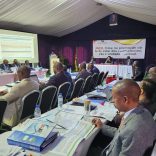
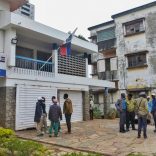




Leave a Reply
Be the First to Comment!
You must be logged in to post a comment.
You must be logged in to post a comment.